Why Healthcare Systems Are Looking for CRM Engagement Platforms
)
CRM, or Customer Relationship Management, is not just for businesses anymore. In healthcare, CRM platforms are used to manage patient information, interactions, and care plans. Unlike traditional business CRM systems that focus on customer sales and service, healthcare CRMs are tailored to the patient journey, capturing intricate details about patient history, preferences, and interactions with the healthcare system. They help healthcare providers deliver personalized care by storing and analyzing patient data. This ensures that each patient receives the attention and treatment they need, when they need it, minimizing the risk of errors and improving overall patient satisfaction.
The Role of CRM Software in Healthcare
CRM software in healthcare is designed to improve the relationship between patients and healthcare providers. By integrating CRM systems, healthcare providers can track patient histories, schedule appointments, and manage billing processes all in one place. This integration not only helps reduce administrative burdens but also ensures that healthcare professionals have more time to focus on patient care, rather than being bogged down by paperwork. Furthermore, the use of CRM software can lead to better coordination among different departments within a healthcare facility, ensuring that everyone involved in a patient's care is on the same page.
Why Healthcare Systems Need CRM Platforms
Healthcare systems face numerous challenges, such as coordinating care across multiple providers, managing patient data, and ensuring compliance with regulations. As patient expectations rise and healthcare delivery becomes more complex, CRM engagement platforms address these challenges by offering a centralized system for managing patient interactions and data. This centralized approach not only streamlines operations but also enhances the ability to deliver care that is both effective and efficient, ultimately leading to improved patient outcomes and satisfaction.
Enhanced Patient Engagement
One of the significant benefits of CRM platforms is their ability to enhance patient engagement. By offering personalized communication and tailored health plans, CRM systems make patients feel more involved in their care. This personalization fosters a sense of ownership and responsibility in patients, encouraging them to adhere to treatment plans and actively participate in their own health management. Moreover, such engagement strategies have been shown to lead to better health outcomes, as patients who are more engaged are generally healthier and more satisfied with their care experience.
Improved Data Management
Healthcare providers handle vast amounts of data daily. CRM platforms help organize this data, making it easier to access and analyze. This can lead to more informed decision-making and better patient outcomes. With the ability to quickly retrieve patient information, healthcare providers can make timely and accurate decisions, enhancing the quality of care provided. Moreover, centralized data storage improves data security, ensuring patient information is protected. This is crucial in maintaining patient trust and complying with regulations such as HIPAA, which mandate stringent data protection measures.
Streamlined Operations
CRM systems automate many routine tasks, such as appointment scheduling and follow-up reminders. This automation reduces the workload on healthcare staff, allowing them to focus on more critical tasks. Streamlined operations mean more efficient healthcare delivery and improved patient care. With less time spent on administrative duties, healthcare providers can dedicate more time to patient interaction, which is essential for building trust and improving patient experiences. Additionally, automation helps reduce the likelihood of human error, further enhancing the reliability of healthcare services.
Key Features of Healthcare CRM Platforms
When choosing a CRM platform, healthcare systems look for specific features that cater to their unique needs. These features not only ensure compliance and efficiency but also support the overarching goal of improving patient care and engagement. Here are some key features to consider:
Patient Management
CRM platforms should offer comprehensive patient management features, including the ability to track patient history, manage appointments, and store medical records securely. These capabilities ensure that all patient interactions are documented and accessible, allowing healthcare providers to deliver consistent and informed care. Additionally, effective patient management features can help streamline the patient journey, reducing wait times and improving overall satisfaction.
Communication Tools
Effective communication is crucial in healthcare. CRM systems should provide tools for email, SMS, and phone communication to keep patients informed and engaged. These tools facilitate timely and clear communication between healthcare providers and patients, which is essential for effective care delivery. Moreover, by offering multiple channels of communication, CRM platforms can accommodate patient preferences, further enhancing the patient experience and engagement.
Analytics and Reporting
Data analytics is a powerful tool for improving patient care. CRM platforms should offer robust analytics and reporting features to help healthcare providers track performance and outcomes. By analyzing data, healthcare providers can identify trends and areas for improvement, leading to more targeted and effective care strategies. Furthermore, analytics can help predict patient needs, allowing for proactive interventions that improve health outcomes and reduce costs.
Compliance and Security
Healthcare CRM platforms must comply with industry regulations such as HIPAA. Ensuring the platform offers robust security features to protect patient data is essential. Security features should include data encryption, access controls, and regular security audits to safeguard sensitive information. Compliance not only protects patient privacy but also helps healthcare providers avoid costly fines and reputational damage associated with data breaches.
The Future of CRM in Healthcare
As healthcare technology continues to evolve, CRM platforms will play an increasingly critical role in patient care. The integration of emerging technologies with CRM systems promises to revolutionize how healthcare is delivered and experienced. Future developments may include more advanced data analytics, integration with wearable devices, and enhanced AI capabilities. These advancements will further personalize patient care and improve health outcomes, aligning with the growing demand for value-based care.
Integration with Wearable Devices
Wearable health devices are becoming more popular, and integrating these with CRM systems could provide real-time data on patient health. This integration would enable healthcare providers to monitor patient conditions continuously, allowing for timely interventions. The real-time data from wearables can also be used to adjust treatment plans dynamically, ensuring that care is always tailored to the patient's current needs and conditions.
Artificial Intelligence and Machine Learning
AI and machine learning can analyze large data sets to identify patterns and predict patient needs. Integrating AI with CRM platforms will allow for more accurate diagnoses and treatment plans, improving patient outcomes. These technologies can also support decision-making by providing healthcare providers with insights derived from vast amounts of data, facilitating more personalized and efficient care delivery. As AI and machine learning continue to advance, their integration with CRM systems will likely lead to more innovative healthcare solutions.
Challenges and Considerations
While CRM platforms offer many benefits, there are challenges to consider. The implementation of these systems requires careful planning and a commitment to overcoming potential hurdles. Implementing a CRM system requires a significant investment of time and resources. Additionally, staff training is essential to ensure the system is used effectively. Without proper training, the full potential of a CRM system cannot be realized, and the investment may not yield the desired returns.
Cost and Resource Allocation
Implementing a CRM system can be costly, and healthcare providers must allocate resources carefully. It's crucial to consider the long-term benefits and savings that a CRM platform can offer. By conducting a thorough cost-benefit analysis, healthcare organizations can better understand the financial implications and ensure that the investment aligns with strategic goals. Moreover, exploring potential funding options or partnerships can help alleviate some of the financial burdens associated with CRM implementation.
Staff Training and Adoption
For a CRM system to be effective, staff must be adequately trained. This ensures that everyone can use the platform efficiently and that patients receive the best possible care. Training programs should be comprehensive and ongoing, addressing the diverse needs and learning styles of healthcare staff. Additionally, fostering a culture of acceptance and adaptation is crucial for successful system adoption, as resistance to change can hinder the potential benefits of a CRM platform.
Conclusion
CRM engagement platforms are transforming healthcare by improving patient engagement, streamlining operations, and enhancing data management. These systems offer a comprehensive solution to some of the most pressing challenges in healthcare today. As technology continues to advance, these systems will become even more integral to healthcare delivery, offering personalized care and better outcomes for patients. Healthcare providers looking to stay ahead of the curve should consider investing in a CRM platform to meet the demands of modern patient care. By leveraging CRM technology, healthcare systems can deliver more efficient, patient-centered care that meets the needs of today's healthcare environment. Whether it's through enhanced patient engagement or more efficient data management, CRM platforms are paving the way for a more connected and effective healthcare system. The future of healthcare will undoubtedly be shaped by these powerful tools, and those who embrace them will lead the way in delivering superior patient care.

